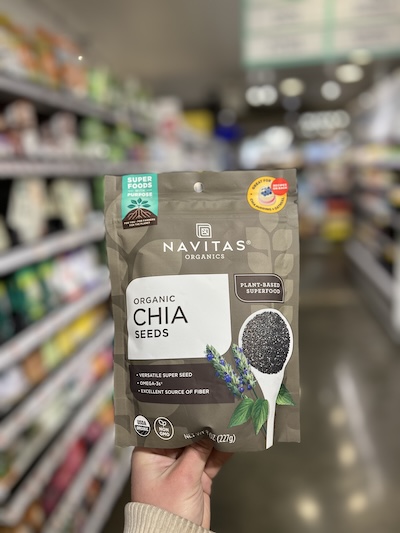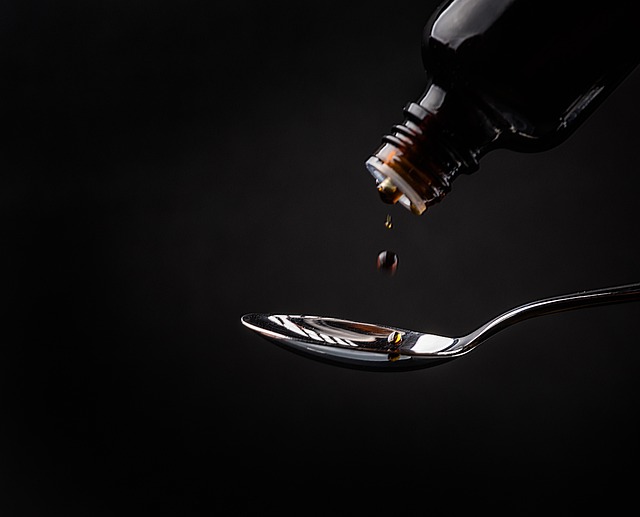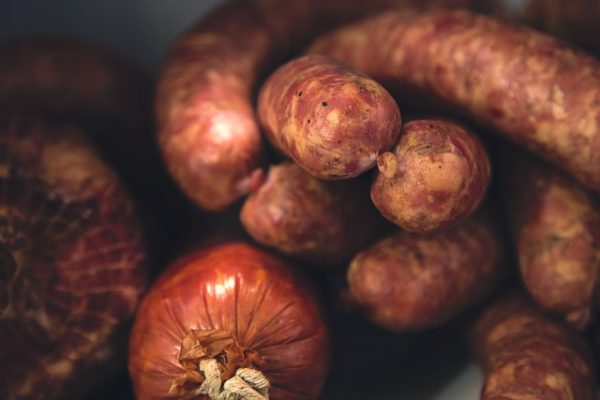Navitas Organics Voluntarily Recalls Certain 8 oz. Organic Chia Seeds Lots
 Recently, Navitas Organics voluntarily recalled certain lots of 8 oz. organic chia seeds based on potential contamination with Salmonella. The recall is part of precautions taken after the company’s chia seed supplied initiated a recall. The affected chia seeds were distributed across the country through Whole Foods Market and other stores, including online stores like Amazon. If you suffered harms due to Navitas organic chia seeds, you should call the seasoned Chicago-based product liability attorneys of Moll Law Group. Billions have been recovered in cases with which we’ve been involved across the country.
Recently, Navitas Organics voluntarily recalled certain lots of 8 oz. organic chia seeds based on potential contamination with Salmonella. The recall is part of precautions taken after the company’s chia seed supplied initiated a recall. The affected chia seeds were distributed across the country through Whole Foods Market and other stores, including online stores like Amazon. If you suffered harms due to Navitas organic chia seeds, you should call the seasoned Chicago-based product liability attorneys of Moll Law Group. Billions have been recovered in cases with which we’ve been involved across the country.
Call Moll Law Group About Your Organic Chia Seed Claim
The recall of Navitas Organic Chia Seeds UPC 858847000284 affects these lot codes, which are printed on the back of the sealed chia seed pouches:
-
- W31025283 – Best If Used By: End APR 2027
- W31025286 – Best If Used By: End APR 2027
- W31025287 – Best If Used By: End APR 2027
- W31025311 – Best If Used By: End MAY 2027
- W31025314 – Best If Used By: End MAY 2027
- W31025315 – Best If Used By: End MAY 2027
- W31025316 – Best If Used By: End MAY 2027
- W31025317 – Best If Used By: End MAY 2027
Other Navitas Organics products have not been impacted by the recall.
Salmonella is an organism that can result in significant and even fatal infections in those with weak immune systems, youth, and frail or elderly people. But even health people who get infected with Salmonella can experience symptoms like abdominal pain, diarrhea, vomiting, nausea, and fever. Occasionally, the organism can enter the bloodstream and produce more serious illnesses.
 Illinois Injury and Mass Tort Lawyer Blog
Illinois Injury and Mass Tort Lawyer Blog


 Recently, unsanitary conditions were discovered at a storage facility, causing the recall of hundreds of products that were distributed to 50 stores in North Dakota, Minnesota and Indiana. These conditions included contamination from rodent urine and feces and bird droppings in locations where many different kinds of products, including drugs, medical devices, food, pet products and cosmetics were stored. If you have bought any of the
Recently, unsanitary conditions were discovered at a storage facility, causing the recall of hundreds of products that were distributed to 50 stores in North Dakota, Minnesota and Indiana. These conditions included contamination from rodent urine and feces and bird droppings in locations where many different kinds of products, including drugs, medical devices, food, pet products and cosmetics were stored. If you have bought any of the  Recently, the manufacturer Medtech Products Inc., a Prestige Consumer Healthcare Inc. company voluntarily
Recently, the manufacturer Medtech Products Inc., a Prestige Consumer Healthcare Inc. company voluntarily  A
A  The FDA has warned consumers not to sell, serve or eat the distributor August Egg Company’s brown cage free and brown certified organic chicken eggs—1.7 million of them been
The FDA has warned consumers not to sell, serve or eat the distributor August Egg Company’s brown cage free and brown certified organic chicken eggs—1.7 million of them been  The Centers for Disease Control has announced a multistate outbreak of E. coli O121 infections linked to supplier Grimmway Farms bagged
The Centers for Disease Control has announced a multistate outbreak of E. coli O121 infections linked to supplier Grimmway Farms bagged  The United States Department of Agriculture has
The United States Department of Agriculture has  During recycling, according to a recent study,
During recycling, according to a recent study,  A new study has found that dark chocolate and other similar cocoa items are contaminated with cadmium and lead. These metals are neurotoxins and they’ve been linked to developmental issues in children, chronic diseases, and cancer. In a sense, because they are in the soil where crops are grown, these heavy metals are present in many different agricultural products, but some crops are more contaminated because there is excessive use of metal-containing fertilizers or proximity to pollution. Chocolate is grown on land that is less contaminated and where fewer pesticides are used. Yet, the journal Frontiers in Nutrition has found that organic dark chocolate—so often recommended by health magazines for certain beneficial properties—contains some of the highest levels of cadmium and lead. If you believe you or your child was harmed by
A new study has found that dark chocolate and other similar cocoa items are contaminated with cadmium and lead. These metals are neurotoxins and they’ve been linked to developmental issues in children, chronic diseases, and cancer. In a sense, because they are in the soil where crops are grown, these heavy metals are present in many different agricultural products, but some crops are more contaminated because there is excessive use of metal-containing fertilizers or proximity to pollution. Chocolate is grown on land that is less contaminated and where fewer pesticides are used. Yet, the journal Frontiers in Nutrition has found that organic dark chocolate—so often recommended by health magazines for certain beneficial properties—contains some of the highest levels of cadmium and lead. If you believe you or your child was harmed by  There have been three deaths and fifty illnesses requiring hospitalization nationwide in a
There have been three deaths and fifty illnesses requiring hospitalization nationwide in a